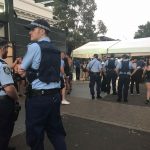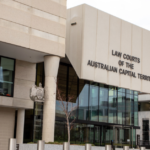The Impact of Drones on Privacy

No longer the preserve of the military and law enforcement, unmanned aerial vehicles, or drones, are being increasingly used in the civilian world. These days, anyone can buy a drone from a retail store at a relatively modest cost.
But what implications does the emergence of drones for civilian use have for privacy? In this article, we will talk about drones, and some of the privacy issues that are being raised by the increasing use of these machines.
What is a drone?
Perhaps the simplest definition of a drone is anything that flies without a pilot. It is controlled remotely, either in real time, or through pre-programming of a set flight path. Drones typically have some type of surveillance equipment attached for recording information during flight.
What can a drone be used for?
Drones come in many shapes and sizes, and have many uses. Predator or Reaper drones are by now familiar weapons of modern warfare, used to launch missile strikes or to perform surveillance of targets or landscapes. Police use drones for surveillance as well.
Drones are being implemented in more sports broadcasts, providing television viewers with the best possible footage of rugby league games or international cricket matches, and allowing commentators to review and commentate on the game in new ways. News stations, too, are using drones to cover unfolding events. In some cases, a drone is a lot cheaper to operate than a helicopter, and can fly into places helicopters can’t. Drones are also being used for scientific research, surveying land, and providing aerial photography.
These uses of drones probably don’t cause us much alarm. Rather than being controversial, or concerning, drones used for these purposes are helping the community, and informing and entertaining us. Drones are not only military or commercial machines these days though. They are also small camera-equipped flying toys that are readily available from the local electronics store or online.
Are drones regulated?
The drone industry in Australia is regulated, but the regulation only applies to approved commercial drone operators. The industry is not regulated for the small lightweight recreational drones that are available, and that can fly up to 400 feet in the air.
Your next-door neighbour could easily be flying a drone above your home and filming you. It is here that the lines of appropriate use become blurred, and the need for further regulation becomes more pressing.
Drones and privacy
Current law has not kept pace with technological advances. While police are regulated to a large extent in terms of their covert investigations, including using drones, the potential for misuse of the surveillance capabilities of this technology by individuals is concerning.
Should police implement drones for the purpose of recording individuals or surveillance, they are subject to the Federal Privacy Act, and are required to obtain warrants before using drones. This can to a large extent control their actions, and hold them accountable for any misuse of drones.
But there is no right to privacy among individuals. In the past, being in your own home was a good measure of ensuring your privacy. However, with the advent of drones, you can be filmed in your backyard without the person recording you being anywhere near your property. While it is illegal for someone standing on your property to film you in your private space, no law exists that prevents someone filming you on your property at close range via a drone.
A topical example of this is the welfare group Animal Liberation announcing plans to use drones to gather footage of potential animal abuse on farms. Farmers argue this impinges on their use of their private property, and have called for measures that require farmers to be notified if drones are being implemented in their airspace. There are no laws to ensure this notification happens, however, and information gathered by the group could ultimately lead to prosecution if animal abuse is uncovered. Without drones, the group would likely have had to enter the property to gather the information, and that requires the consent of the property owner. It seems a leap in logic that consent is required when entering the property on land but not when entering it in the air.
Perhaps the rise in use and the potential for the misuse of drones will lead to changes in privacy laws. It might be interesting to see a case mounted for stalking, harassment or intimidation in relation to drone use. Such a case would be a novel one, and set a precedent for the future. In the meantime, if someone is filming you on your property using a drone, or you want to use a drone recreationally, it might be a wise idea to speak to a criminal lawyer about the privacy issues.






